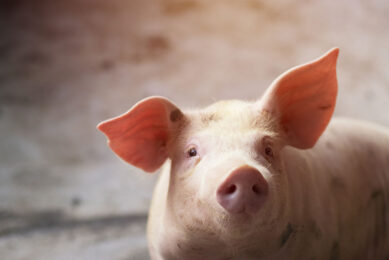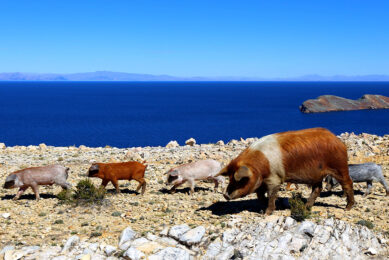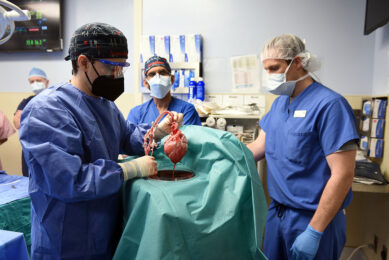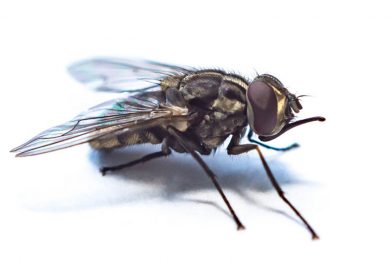MRSA found in many Belgian pig farms
A recent survey in Belgium has shown that the bacteria Methilin-resistant Staphylococcus Aureus (MRSA) has been isolated in 68% of the pig farms. In 37% of the cases, the farmer and his relatives also carried pig MRSA.
This pig MRSA, a variant of the human MRSA, has also been found in several other countries including Austria, Canada, Denmark, France, Germany and Hungary.
Transmission
Both in production animals and in humans. It is assumed that this bacteria is transmitted from animals to humans. Further studies are underway in several countries, but it seems likely that MRSA is widespread in the pig and cattle populations.
This strain is mainly found to colonise animals, but has in a few cases been found to cause infections.
The limited number of reports is probably due to the difficulties in isolating this bacteria from animals because this requires selective enrichment media. It can be expected that several new reports will be published in the near future.
Dutch hospitals
This MRSA variant came to light in October 2003, when Dutch hospital officials detected MRSA in a young girl with no obvious risk factors for the disease.
When they tested her father – a pig farmer – and the farm workers, they all showed to carry MRSA. When the tests were extended to the pigs on the farm, they too were positive. In the meanwhile slaughterhouse workers and large-animal vets have also tested positive for the pig-associated MRSA.
Consternation
The presence of MRSA in their pig herd already caused much consternation in the Netherlands. It is not so much for the pigs, where S. aureus is not associated with a specific disease problem, but for the humans in contact with pigs and other farm animals that might carry the infection into hospitals, where the major problem lies.
The reason for the colonisation of MRSA in pigs and other production animals is currently not known. It is possible it may be associated with the use of cephalosporins and other antibiotics in the feed. Further studies however are carried out to investigate this.
For the latest pig news, subscribe here











